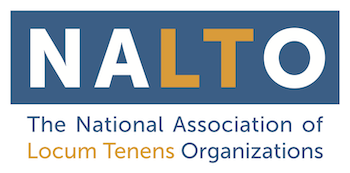Whether you are a year out of residency or a year from retirement, there are certain career constants that you enjoy - or contend with, depending on your point of view - as a physician. Embracing ongoing career development can help ensure a satisfying and meaningful professional life. Consider these five practice guidelines.
Clinical advances keep you on your toes.
Physicians are fortunate to be in a field that is constantly changing. While it may feel daunting at times to stay up to date, lack of intellectual stimulation is never a problem. Keeping up clinically is easier than ever, thanks to the Internet. Online CME abounds in all specialty areas so that you can earn credit whether you are in the office, at home, in a hotel, or at the airport. Being able to read your favorite journal articles online makes it easy to keep up with the latest medical developments. It is important for physicians to stay current not only in clinical matters, but also with advances in information technology. More and more hospitals and clinics are converting to electronic systems, so being computer-phobic is no longer an option.
The business side of medicine is always a factor.
Even for locum tenens physicians, there are business issues associated with practicing. If you neglect details like submitting time sheets, tracking expenses, and managing income taxes, there could be consequences. While you are not burdened with many administrative tasks, keeping up on the fundamentals of practice management is a smart idea. Locum tenens physicians benefit from observing practice in a variety of settings and geographic locations. Learn as much as you can during temporary engagements; you may want to tap that base of knowledge in the future.
Interpersonal skills matter.
To be human is to grow and change—personally and professionally. How you present yourself, communicate with patients, and perceive your place in the world as a doctor evolves over time. Locum tenens physicians are in the unique position of having new workplace experiences on a regular basis, which offers an opportunity for ongoing interpersonal development. Working in different corporate cultures and with diverse patient populations allows you to sharpen your abilities to adapt and recalibrate your practice methods to meet the challenges of each new situation. The ability to get along in a variety of situations, practice good bedside manner, and deal effectively with colleagues are critical skills for all physicians, but even more so for those who are under scrutiny as the "new" doctors.
The risk of burnout is real.
Given the choice to slack off or go the extra mile, most physicians choose the latter. This quality endears doctors to employers and patients, but puts them at risk for career burnout. Locum tenens physicians can attest to the fact that a change of scenery can work wonders when it comes to keeping burnout at bay. The locum tenens lifestyle, however, comes with its own challenges, such as the demands of travel and the lack of a local social network. All physicians should heed the warning signs of burnout, some of which include: feeling overwhelmed; chronic fatigue; moodiness, resentment, cynicism, anger, anxiety, or depression; alcohol or drug overuse; and feeling helpless or hopeless. If you think you might be teetering on the edge of burnout, try the obvious remedies first—take a "real" vacation, pay attention to personal health and fitness, spend more time with friends and family, or engage in leisure activities. Professional renewal might also include learning a new skill, becoming involved in your specialty's organization, or doing medical volunteer work. If symptoms persist, see a career coach or mental health professional.
Physicians are always in demand.
In certain specialties, the supply-demand pendulum swings back and forth, but rest assured that your services are needed somewhere. Should you find yourself on the "wrong" end of the pendulum in your permanent practice, locum tenens is an excellent opportunity to use your expertise where it is truly appreciated.
As you consider these career constants, try to think of others that may be applicable to your own professional life. If being forever in learning mode ever gets you down, consider the words of Albert Einstein: "Never regard study as a duty, but as the enviable opportunity to learn...for your own personal joy and to the profit of the community to which your later work belongs."
Views and opinions expressed herein are those of NALTO and not necessarily those of Advanstar Communications Inc. or LocumLife.
About the Author
Karen Childress is a Colorado-based freelance healthcare writer currently crafting a series of articles on behalf of NALTO.
